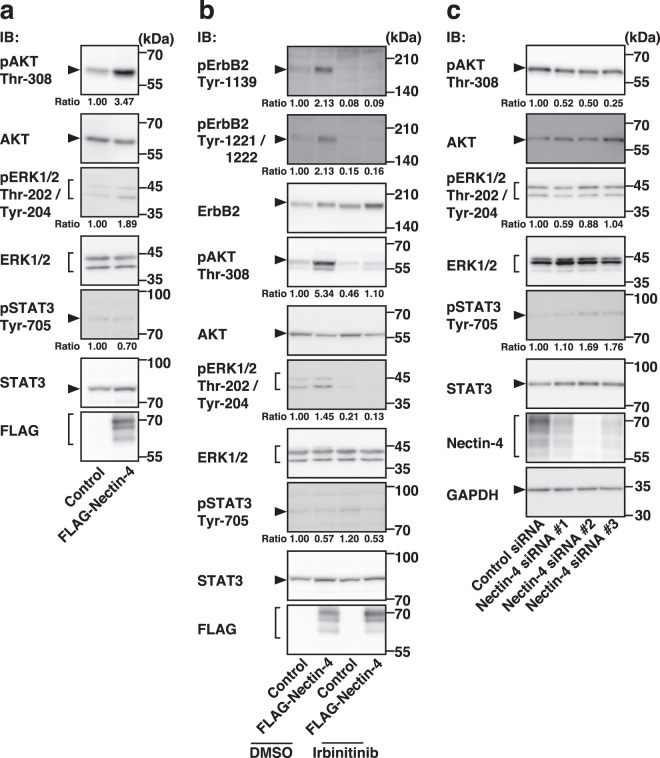Figure 4.
Selective enhancement of the activation of the PI3K-AKT signalling pathway by nectin-4. (a) Selective enhancement of the activation of the PI3K-AKT signalling pathway by nectin-4. T47D cells stably expressing FLAG-tagged nectin-4 (FLAG-Nectin-4) were serum-starved for 24 h, and the samples were subjected to Western blotting using the indicated Abs. (b) Reduction of the threonine-phosphorylation of AKT and threonine- and tyrosine-phosphorylation of ERK1/2 by an ErbB2 inhibitor. T47D cells stably expressing FLAG-Nectin-4 were serum-starved and treated with the ErbB2 inhibitor irbinitinib at 1 μM. The assay was carried out as in (a). (c) Reduction of the threonine-phosphorylation of AKT by the knockdown of NECTIN4. SUM190-PT cells were transfected with a control siRNA or NECTIN4 siRNAs. The assay was carried out as (a). Ratio represents the band intensities of each phosphorylated protein on the indicated tyrosine and threonine residues that were normalized to those of each total protein, and the normalized value of the control cells (DMSO-, but not Irbinitinib-, treated cells (b) or control siRNA cells (c)) was set as 1.00. Arrowheads and square brackets indicate each of the proteins. The displayed blots were cropped, and the full-length blots are shown in Supplementary Figs. 6 and 7. IB, immunoblotting; pAKT, phospho-AKT; pErbB2, phospho-ErbB2; pERK1/2, phospho-ERK1/2; pSTAT3, phospho-STAT3. Representative results from three independent experiments are shown.

